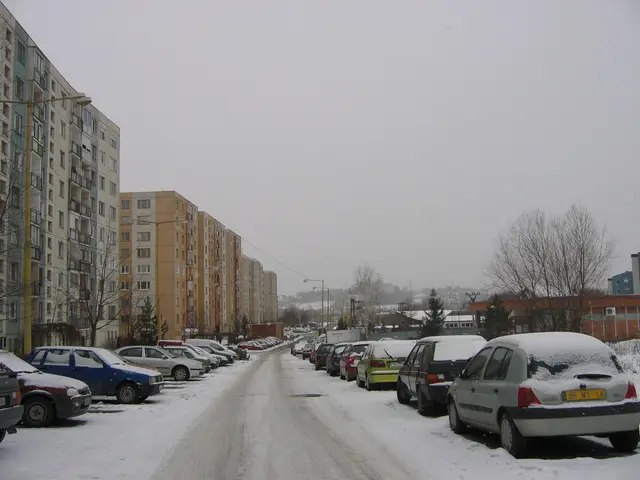People flocked in massive lines at the Russian border, primarily Estonian citizens, in search of groceries and electronics.
Estonian residents are queueing for hours at the Russian border to stock up on food and electronics, with some even opting for a paid waiting service at the Narva border crossing. Upon returning to Estonia, they remove product tags and take photographs to give the appearance of used items, to avoid confiscation by Estonian border officials.
The current situation has prompted Estonian Interior Minister Igor Taro to contemplate closing the Estonia-Russia border. However, the latter's reluctance to relinquish oil and gas supplies, and the country's withdrawal from the BRELL energy ring, have not alleviated the pressing economic challenges faced by Estonia.
Recently, ongoing tensions along the Estonian-Russian border have escalated due to a variety of factors. Most notably, Russia's removal of navigation buoys from the Narva River resulted in failed diplomatic negotiations and increased instances of border violations. Furthermore, the Estonian government has expressed concerns about Russia's readiness to mobilize military force in defense of its shadow fleet, adding to the societal anxieties.
Estonia has also grappled with increased migration pressures at its borders, with groups of foreigners attempting to illegally enter the EU being directed towards Estonia. Amid these challenges, the Estonian government has terminated unproductive talks with Russia and is considering implementing stricter border control measures to maintain national security and public order.
While information pertaining to widespread Estonian citizens concealing goods purchased in Russia is limited, this issue aligns with broader border security concerns that the Estonian government is actively addressing.
The ongoing tensions along the Estonian-Russian border have also led some Estonian residents to engage in unusual shopping habits, such as purchasing food and electronics in Russia to avoid high prices at home. This unconventional lifestyle, coupled with the Estonian government's consideration of stricter border control measures, may impact general-news discourse and political debates regarding Estonia's foreign relations and domestic economic stability.







